Protists
Protists are a diverse group of eukaryotic organisms that are not plants, animals, or fungi. They are mainly unicellular but can also exist as multicellular organisms. Protists are found in various aquatic and moist environments and play important roles in ecological processes.
Characteristics of Protists
- Eukaryotic: Protists have a true nucleus and membrane-bound organelles.
- Diverse: Protists exhibit a wide range of forms, from single-celled organisms to large, multicellular seaweeds.
- Motility: Many protists are capable of movement using cilia, flagella, or pseudopodia.
- Nutrition: Protists can be autotrophic (photosynthetic), heterotrophic (consuming organic matter), or mixotrophic.
Classification of Protists
Protists are classified into multiple groups based on their characteristics and evolutionary relationships:
- Protozoa: Unicellular organisms that exhibit animal-like characteristics, such as movement and heterotrophic nutrition.
- Algae: Photosynthetic protists that can be unicellular, colonial, or multicellular. They are important producers in aquatic ecosystems.
- Slime molds: Unicellular or multicellular protists that can exhibit both animal-like and fungus-like characteristics.
Importance of Protists
Protists play crucial roles in various ecosystems. For example:
- Photosynthetic protists are primary producers, forming the base of many aquatic food chains.
- Some protists are parasites that can cause diseases in humans, animals, and plants.
- Protists contribute to nutrient cycling and decomposition processes in the environment.
Study Guide
When studying protists, it's important to focus on the following key points:
- Understanding the characteristics that define protists as a group of organisms.
- Recognizing the diversity of protists and their various forms of motility and nutrition.
- Learning about the classification and major groups of protists, including protozoa, algae, and slime molds.
- Appreciating the ecological importance of protists and their roles in different ecosystems.
By mastering these concepts, you will develop a comprehensive understanding of protists and their significance in the biological world.
[Protist] Related Worksheets and Study Guides:
.◂Biology Worksheets and Study Guides High School. Genetics and heredity II
Worksheet/Answer key Genetics and heredity II
Genetics and heredity II  Worksheet/Answer key
Worksheet/Answer key Genetics and heredity II
Genetics and heredity II  Worksheet/Answer key
Worksheet/Answer key Genetics and heredity II
Genetics and heredity II  Vocabulary/Answer key
Vocabulary/Answer key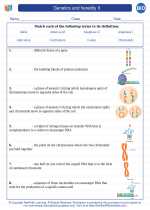 Genetics and heredity II
Genetics and heredity II  Vocabulary/Answer key
Vocabulary/Answer key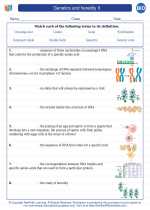 Genetics and heredity II
Genetics and heredity II  Vocabulary/Answer key
Vocabulary/Answer key Genetics and heredity II
Genetics and heredity II  Vocabulary/Answer key
Vocabulary/Answer key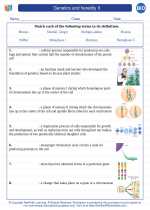 Genetics and heredity II
Genetics and heredity II  Vocabulary/Answer key
Vocabulary/Answer key Genetics and heredity II
Genetics and heredity II  Vocabulary/Answer key
Vocabulary/Answer key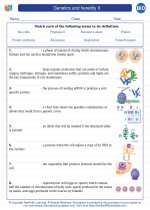 Genetics and heredity II
Genetics and heredity II  Vocabulary/Answer key
Vocabulary/Answer key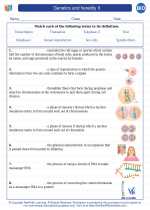 Genetics and heredity II
Genetics and heredity II 

 Worksheet/Answer key
Worksheet/Answer key
 Worksheet/Answer key
Worksheet/Answer key
 Vocabulary/Answer key
Vocabulary/Answer key
 Vocabulary/Answer key
Vocabulary/Answer key
 Vocabulary/Answer key
Vocabulary/Answer key
 Vocabulary/Answer key
Vocabulary/Answer key
 Vocabulary/Answer key
Vocabulary/Answer key
 Vocabulary/Answer key
Vocabulary/Answer key
 Vocabulary/Answer key
Vocabulary/Answer key

The resources above cover the following skills:
LIFE SCIENCE (NGSS)
Heredity: Inheritance and Variation of Traits
Students who demonstrate understanding can:
Ask questions to clarify relationships about the role of DNA and chromosomes in coding the instructions for characteristic traits passed from parents to offspring.